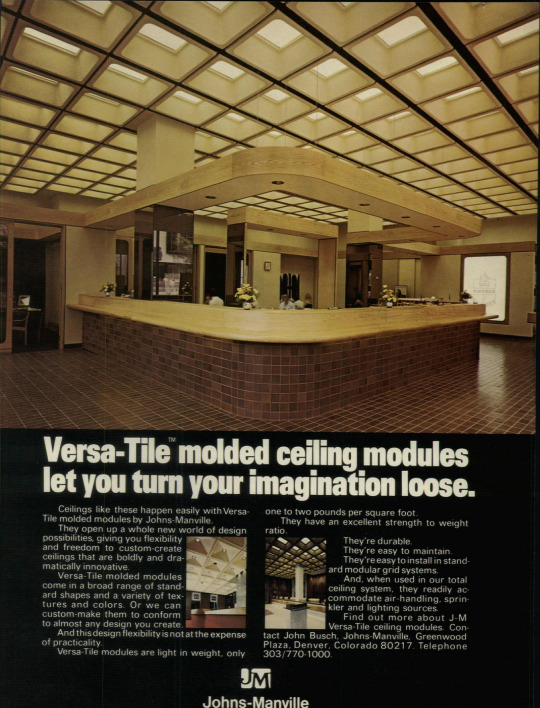#CONSTRUCTION TECHNOLOGIES
Explore tagged Tumblr posts
Text
How Technology in Construction is Revolutionizing the Industry
The construction industry, often seen as a bastion of tradition, is undergoing a profound transformation driven by technology. From designing to building, managing to monitoring, technology is reshaping every aspect of the construction process. This revolution is not only enhancing efficiency and safety but also unlocking new creative possibilities. In this article, we delve into the ways technology is revolutionizing the construction industry.
1. Building Information Modeling (BIM)
Building Information Modeling (BIM) is a digital representation of a building's physical and functional characteristics. It's more than just 3D modeling; it's an intelligent information-rich process that allows architects, engineers, and construction professionals to collaborate seamlessly. BIM enables the visualization of a project before it's built, leading to improved design quality, clash detection, and better decision-making throughout the project lifecycle.
2. Prefabrication and Modular Construction
Technology is enabling the widespread adoption of prefabrication and modular construction, where building components are manufactured off-site and assembled on-site. This approach reduces construction time, waste, and cost while maintaining high quality. It's particularly effective for repetitive elements like walls and floors, speeding up projects and minimizing disruption to surrounding areas.
3. Drones and Aerial Imaging
Drones equipped with high-resolution cameras are changing the way construction sites are surveyed and monitored. They provide a bird's-eye view of the site, helping project managers track progress, monitor safety compliance, and identify potential issues. Aerial imaging also aids in site analysis, site selection, and accurate topographic mapping.
4. Augmented Reality (AR) and Virtual Reality (VR)
Augmented Reality (AR) and Virtual Reality (VR) technologies are enhancing project visualization and communication. AR overlays digital information onto the real world, helping workers visualize designs on-site. VR immerses users in a digital environment, allowing stakeholders to virtually walkthrough and experience a project before construction begins. These technologies streamline design approvals, reduce errors, and improve collaboration.
5. Robotics and Automation
Robots are increasingly being used in construction tasks that are repetitive, hazardous, or require extreme precision. Robotic bricklayers can lay bricks at an astonishing pace, while autonomous heavy equipment can handle earthmoving and grading. Automation not only improves efficiency but also reduces the risk of accidents and injuries.
6. 3D Printing
3D printing is making its mark in construction, enabling the creation of complex structures with less waste and faster construction times. Large-scale 3D printers can produce entire walls, bridges, and even houses. This technology holds the potential to revolutionize affordable housing and emergency shelter construction.
7. Internet of Things (IoT)
The Internet of Things (IoT) is connecting construction sites like never before. Sensors embedded in equipment, materials, and even worker wearables collect real-time data on everything from equipment health to worker safety. This data-driven approach enhances decision-making, optimizes resource allocation, and improves overall project management.
8. Sustainable Construction Practices
Technology is driving the adoption of sustainable construction practices. Energy-efficient designs, smart HVAC systems, and renewable energy integration are becoming standard. The analysis of data collected from smart buildings helps optimize energy consumption and reduce environmental impact.
Conclusion
Technology is not only transforming the construction industry; it's redefining what's possible. The integration of digital tools, automation, and data-driven insights is optimizing every stage of the construction process, from concept to completion. As technology continues to advance, the construction industry stands on the brink of a new era marked by efficiency, safety, sustainability, and innovation. Embracing these technological advancements is not just an option; it's a necessity for those looking to thrive in the rapidly evolving world of construction.

#technology#construction technologies#construction#house construction#construction workers#modern construction technology#technology construction stairs#construction technology examples#technology and technical construction stairs#mega construction#construction methods#construction equipment
1 note
·
View note
Text

Scientists in China created a new cement that turns heat into electricity. This could help buildings produce their own power and support eco-friendly cities.
#cement#thermoelectric#sustainable#green energy#innovation#science#infrastructure#eco-friendly#construction#china#technology
208 notes
·
View notes
Text

Retconned Wardi firearms- a basic handgun, a highly decorative ceremonial handgun (belonging to Faiza), and a lance-gun.
Gun tech has officially been nerfed down to hand cannons (press F) (this has been a long time coming but I'd been fallacy of sunk costs-ing myself out of retconning).
Handguns are held similarly to a shotgun, with the butt pressed into the user's shoulder, one hand gripping under the barrel, and the other free to ignite the gunpowder. These represent the most advanced firearms in contemporary usage, both in make and in their use of uniform iron projectiles built to match the gun's bore for greater range and efficiency. Lance-guns are the more basal form, usually larger and mounted with the pole held over the shoulder, and are most effectively used by two people (one to hold and aim, one to light the gunpowder).
The spread of firearms is currently mostly limited to the Eastern Inner Seaway peoples (with some additional distribution via overland trade), and actual manufacture of hand cannons and gunpowder at Significant scale is limited to the region's core powers.
The reason for this limited spread is partially due to specific elements of the technology's history. Gunpowder was first synthesized by Burri alchemists and considered to be the discovery of the legendary divine weapon + solar fire of the deity Inanariya, and its formula (along with techniques for ideally refining its components) remained a closely guarded state secret. It was used predominantly in priestly contexts to generate flame and explosive sounds (in conjunction with earlier practices of generating multicolored flames with use of other chemicals), then integrated into combustible weaponry in the forms of fire lances, which would eventually develop into early handcannons.
The treatment of gunpowder as a guarded sacred or semi-sacred substance continued with Wardi adoption, where knowledge of its making is considered a closed rite. It's name (inya tsatsul or just tsatsul, a derived adoption of the Burri iñazatsūya) still reflects a divine solar association (the Burri word means 'sun's thunder', the Wardi 'inya' invokes the sun, 'tsatsul' is an adapted loanword and has no meaning independent of the substance itself), though its priestly use is now predominantly associated with the firearm'ed Odonii (rather than priests of the solar Face Inyamache). The composition of gunpowder can no longer be regarded as a Secret by any means, though efforts to obscure the methods of its creation are still moderately successful and has kept knowledge of gunpowder manufacture more limited than the total sphere of firearm usage itself.
The actual strongest limiting factor of firearm usage is the rarity of natural saltpeter deposits necessary for making gunpowder. The practice of actively producing saltpeter via nitraries has not been developed anywhere in the setting, and all is instead obtained via natural sources. These sources are rare and limited within the current spread of firearm technology, and result in gunpowder being a limited and expensive substance to produce. The weapons themselves are also very expensive to manufacture (a good quality steel SWORD is far too material-cost prohibitive for most people to own), particularly high quality firearms designed for use with standardized ammunition.
These guns are also very basal, and logistical difficulties in their use (weight, very slow loading and firing speed, high visibility, Relatively low reach and accuracy) along with the restrictive cost of production has kept firearms far from rendering conventional weaponry, armor, and projectiles obsolete (even within the societies that have access to them). They are still, however, very devastating in use within their contemporary context, particularly in that high quality guns have a longer range than the best arrow-based projectiles, and utterly negate most contemporary forms of armor at close range.
#I'd consider the setting to be like.....most closely analogous to like 3rd-1st century BCE earth (in terms of the average scale of#societies + Most of its technology (aside from major exceptions like this) + trade interconnectivity)#There are VERY few Very Big states capable of mass-manufacturing and resource extraction (like nothing the size of#the Roman empire has Ever existed in this setting. The biggest empires aren't even close. Cynozepal has a pretty massive territorial#span so is probably the closest thing but its actual control is highly fragmented along disconnected central hubs)#There's significant seaway trade connections but the Vast majority of transmission of goods is localized (even moreso over land)#So point being firearms have developed '''''earlier''''''' than in IRL history but the conditions that enabled very rapid spread are#not really present (though it's fairly inevitable that they'll become widespread over the next few centuries)#Also the likely trajectory of adaptation is going to be the development of Plate armor (which could absorb/block shots#from some types of firearms More advanced than these).#The types of armor used in this particular region is mostly lamellar/scale/padded fabric/leather and rarely involves#full body protection (using a shield to compensate) so developing thicker and fully protective armor would be the next logical#step in the arms race#I think it would be a fun constructed history for armor technology to outpace these simple firearms enough that they end up largely#abandoned in favor of re-specializing in close combat but I don't really care to plan out the far future that much
79 notes
·
View notes
Text

[筆刀刀刀]
#art#creature#DAOpenpen#robot?#when robots reach a certain threshold of technological impossibility with have the inclination to call them constructs#- is a thought I had
100 notes
·
View notes
Text









Trans engineer stimboard to celebrate me getting on T :]]]
Art by @gearbroth
🏳️⚧️ 🔧 🏳️⚧️ / 🔧 🏳️⚧️ 🔧 / 🔧 🏳️⚧️ 🔧

#trans#buttons#bee#tf2#engineer#machinery#mech#mechanical#technology#heart#strawberry#earring#fidget toy#stim toy#calculator#math#cows#cowboy#team fortress 2#stim#stimboard#not request#fav#construction
41 notes
·
View notes
Text

#2019#photography#dmitri djuric#urban#cityscape#architecture#art#design#night photography#street art#night#construction#street photography#city#street#aesthetic#lights#technology#city life#buildings#🏗 🧱
27 notes
·
View notes
Text
Day 346: Future Welding Helmet

link
–This image is part of the public domain, meaning you can do anything you want with it! (you could even sell it as a shirt, poster or whatever, no need to credit it!)–
#public domain#art#copyright#free art#open source#flickr#flickblr#photography#creative commons#no copyright#junk art#found objects#welding technology#welding equipment#welding supplies#welding helmet#construction#sculpture#jewelry#helmet#welding#screws#chess pieces
21 notes
·
View notes
Text

Johns-Manville Versa-Tile advertisement, 1975.
144 notes
·
View notes
Text

I have been wondering this for such a long time (x)
#also lends more validity(?) to the idea that the planet could be#*googles if there’s a science fiction term to refer to it by*#a Dyson sphere 👀#someone else suggested that it’s post-apocalyptic Earth which had crossed my mind before as well but#with all the talk of the mother flame and going into the planet’s core to harvest the flame/power/energy - it makes one wonder…#a highly technologically advanced society would theoretically be able to construct a planet-esque dome around a star…#also calling it ‘the mother flame’ does seem to indicate it the the birth or start of something else right?#one piece#my post#bluestar#one piece volume 111#one piece theory
10 notes
·
View notes
Text

#motorcycle#moto#motorbike#factory#construction#digital art#artwork#art#graphic design#design#future#cybernetics#technology#futurism#my art#futuristic#industry inspection#industrial#motorsports#cyberpunk art#cyberpunk#poster art
11 notes
·
View notes
Text
evil voice in my head: nightingale. you have to write that several part tumblr post about the characters from the games you play that would make for amazing or really fun interactions and parallels with warhammer 40k things especially the primarchs and astartes
my common sense: I mostly play gacha or anime style games. who is actually going to want to read about how I think firefly from honkai star rail is just a cute anime girl version of a space marine or how lagrange from arcaea straight up commits almost blueprint warhammer style thoughtcrime heresy the second she perceives the truth of the world
#nightingale chirps#warhammer 30k#warhammer 40k#seriously what is wrong with me#IM LIKE. OH YEAH FIREFLY IS JUST A SPACE MARINE HUH. “FOR THE EMPRESS” SHE SAYS. IN POWER ARMOUR. FIGHTING ALIEN BUGS.#or “oh my fucking god slaanesh would LOVE virtuosa from arknights and actually laterano is thematically relevant too”#or “wait wouldn’t ferrus like the theoretical idea of construct technology from PGR”#or. OR!! FU HUA AND PRIMARCHS
29 notes
·
View notes
Text
#good news#construction#green construction#green technology#biomaterials#arcitecture#environmentalism#science#environment#nature#climate crisis#climate change#carbon sinks#carbon emissions#carbon sequestration#microbes#microbiology
22 notes
·
View notes
Text

BioTech Industries Borg Construct Aj^6
Source: The Essential Guide to Weapons and Technology (Del Rey, 1997)
#star wars#cybernetics#cyborgs#lobot#cloud city#biotech industries#borg construct aj^6#aj^6#computers#first appearance the empire strikes back#galactic civil war#essential guide to weapons and technology#essential guides
10 notes
·
View notes
Text
I've recently decided to take my Star Wars modern AU and give it a plot and as I've been thinking about it I wrote a short scene that takes place somewhat close to the beginning middle-ish. Unfortunately, I do not want to spoil the story so this scene is without context, but I'll post it here anyways for anyone who wants to read it.
There were no lectures in the Fett car that night. Only silence, though it was sometimes interrupted by the crunching of rocks on the asphalt road against the car’s tires. Omega huddled in the back seat, trying to ignore the glare Crosshair was giving her from the rearview mirror. Out of all her brothers, he was the angriest, which was not really very surprising. Crosshair tended to be like that. His anger was like ice—cold, hard, and long-lasting. Omega knew it could be months before he stopped being mad. She could even be done with her sentence—three months of grounding plus an extra month of chores—before Crosshair even began to stop being angry. Sometimes she wished he wasn’t like that. But it was just a testament to his loyalty—loyalty that kept him with Omega and her brothers instead of letting him roam off around the world like Omega knew he wanted to. She hoped someday he would get to travel. He had told her once, in the strictest confidence, that he wanted to visit every country. So far, he had only been to three. Omega had been curious after he shared that with her, and she had snuck out his passport while he had been sleeping. Two stamps. One to Afghanistan, and the other to Costa Rica. The former had been to visit a recovering Echo. The latter had been for his never-spoken-of time working for the Empire. Omega usually liked Crosshair’s loyalty. But not now. Now it would mean holding onto his anger. There wouldn’t be any late-night movies or conversations between them for a while. Omega curled her legs up to her chest and hugged her knees. It would be fine. She’d get through this.
#i think this is the first time i've posted anything about my modern au bad batch so i'll give a brief summary of their lives#crosshair is currently working the night shift as a security guard for a local museum (not night-at-the-museum-esque at all)#hunter is a pe teacher during the school year and a park ranger during the summer#tech is just . . . a tech guy#like he does technology stuff in the corporate sphere#wrecker's a construction worker specializing in demolitions (of course)#and echo runs a local diner that goes for breakfast and lunch (he's gotta be home in time to see omega after school)#star wars#the bad batch#tbb omega#writing#star wars fanfiction#star wars modern au
9 notes
·
View notes
Text

"This image depicts a high angle view of technicians working on the instrument unit (IU) component assembly for the SA-8 mission in Marshall Space Flight Center's building 4705. A thin, circular structure, only 1-meter high and 7.6 meters in diameter, the IU was sandwiched between the S-IV and Apollo spacecraft. Packed inside were the computers, gyroscopes, and assorted black boxes necessary to keep the launch vehicle properly functioning and on its course."
Date: 1964
NASA ID: MSFC-6412716
#AS-104#SA-8#Metroid Technology Satellite Mission#Saturn I#Saturn I Block II#Rocket#NASA#Apollo Program#construction#Michoud Assembly Facility#MAF#New Orleans#Louisiana#1964#my post
37 notes
·
View notes
Text

The AHR Expo in Orlando showcased innovations in HVAC&R technology. Learn about the latest trends in construction industry, construction and building materials. AHR Expo Orlando, construction industry, construction and building materials, designing buildings, HVAC&R innovations
#construction industry#construction and building materials#designing buildings#construction design build#construction industry trends#construction industry news#digitalization in construction industry#building news#construction news today#new trends in construction technology#construction news subscription#construction industry events#construction news magazine#world construction news#construction today magazine#construction industry magazine#construction market news#construction sector news#global construction news#latest news about construction#construction industry updates#construction industry technology trends#construction industry newsletters#construction industry news magazine#key trends in construction industry#top construction news#global construction industry overview#building and construction news#construction business news#building construction magazine
2 notes
·
View notes